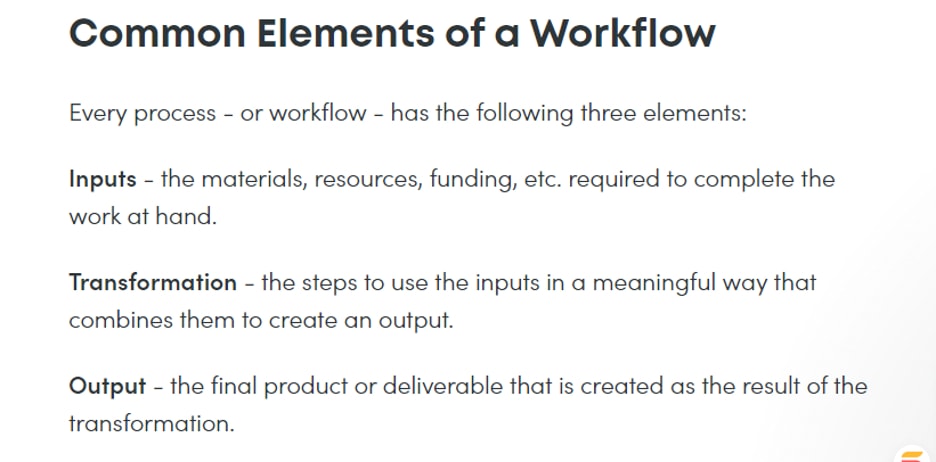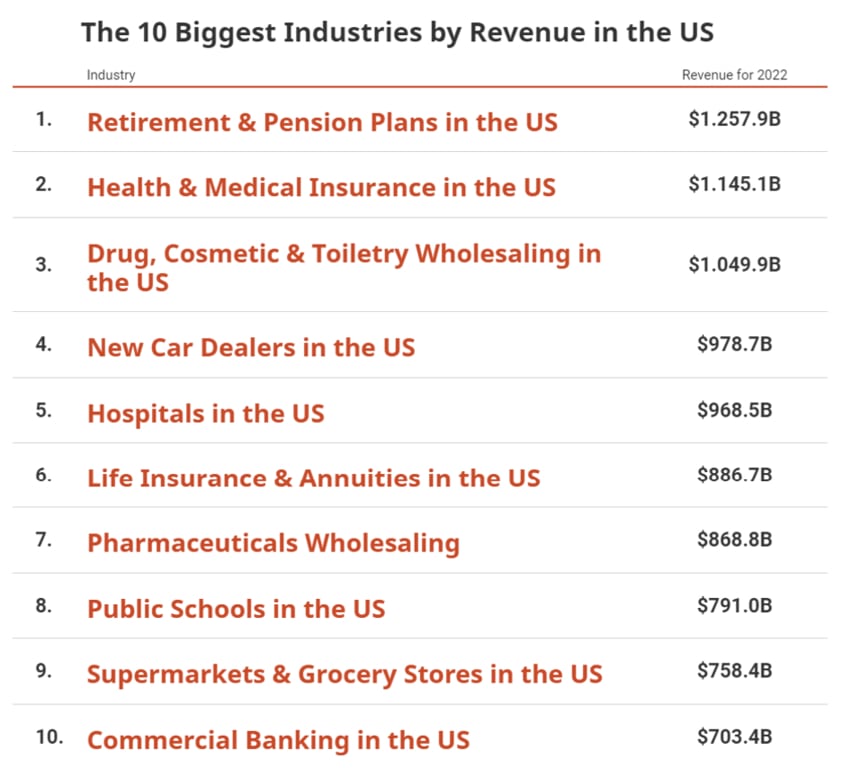You’ve been dreaming of going into business for yourself since you were in college, and that day has finally come.
After a decade of working for talented startups, you feel equipped to handle the business world on your own.
The problem? You have no idea which industry to choose.
You’ve worked in a wide variety of industries, and you’re torn. You can’t stop thinking about everything that could go wrong.
What if I choose an industry I thought I’d enjoy, but then I end up hating it? What if I choose an industry I love, but my business ends up failing? How can I be sure I’ve chosen the right industry?
To set you on the right track, we’ve created a simple eight-step system to help you choose the right industry for your new business.
Step 1: Write Down All of Your Concerns, Ideas, And Information
It’s difficult to settle on the right industry for your business when you have constant concerns and information clouding your focus. In this step, focus your thoughts by writing down all of your concerns, ideas, and information.
Grab a notebook or a few scratch pieces of paper and write it all down.
We recommend answering the following questions during your brain dump:
- What concerns are you worried about and why?
- What current skills and expertise do you have?
- What are your dreams, desires, and business goals?
- What kind of education and business background do you have?
- What kind of personal and business networks do you have?
- What are your current business ideas?
- What burning questions do you have?
- What are your business must-haves?
- What website would you like to develop for your business?
- What are your business deal-breakers?
We also recommend jotting down your financial and credit information if you have it on hand. If not, set aside time to gather your financials, too.
Finally, be sure to document any details you want to implement into your business.
Step 2: Organize Your Brain Dump in a Workflow
Gather up your scratch pieces of paper and organize the contents in a digital workflow.
In your workflow, dedicate a space for each theme on your list. For instance, “questions and concerns” will be grouped together in its own space. And “business ideas” will have its own spot, too.
Then, prioritize each theme on a scale of one to five — with five being the most important and one being the least important. Simply add a number next to each theme.
Next, organize your workflow by priority. This way, you’ll tackle your top priorities first, and your lowest priorities last.
Finally, look at every priority in your workflow. Which ones need research? Which ones need nurturing? Add a note that says “research” if research is needed and a note that says “nurture” if more nurturing is needed.
For instance, in the questions section, you’ll need to conduct research to find answers to your questions.
But in the skills and expertise section, you may just need to catalog your skills for marketing purposes. You might also decide to attend a few online classes to beef up your know-how. In this case, your “skills and expertise” would need nurturing.
Once you’ve added a note to each priority, start checking off your to-dos one by one.
Do you need help to choose the right industry for your new business project?
Step 3: Audit Your Work History
Your work history reveals the careers you’ve had and the skills you’ve cultivated. But what about other important aspects of your work history?
What about the mistakes you made and the lessons you learned? What about the people you worked with and the communication styles you ran into? What about the customer pain points you witnessed and the bosses you had?
Each one shaped and made you into the person you are today. You can use that information to draw boundaries around what you’d like your future business to look like.
In this step, take a moment to journey back through your work history.
Be sure to notate:
- What worked and what didn’t
- Important lessons you learned
- Problems you noticed
- Ideas you had that never happened
- Industry specific pros and cons
Then, consider your workflow. Are there any questions or revelations that have come through during this step? If so, prioritize them and integrate them into your workflow.
When it’s time to tackle this priority, consider how aspects of your work history might affect your future business. If you notice any red flags surrounding particular industries you have experience in, document your concerns and take that into consideration before finalizing your industry.
Step 4: Discover Your Business Ikigai
Ikigai is a Japanese concept that the western world has adopted. It’s a way of finding someone’s dream career.
Traditionally “ikigai” means reason for being. It’s what the Japanese say inspires you to get out of bed in the morning.
In western interpretation, you’ve found your ikigai — or your dream job — when you have a career that ticks the following boxes:
- It’s a career you love
- It’s a career you’re good at
- It’s a career that pays well
- It’s a career that benefits the world
To discover your business ikigai, consider the following ikigai questions:
- What do you love?
- What are you good at?
- What can you be paid for?
- What does the world need?
Then, consider which industries would tick all four boxes. To visualize what we mean, take a look at the ikigai diagram below:
Your ikigai is that sweet spot in the middle, where all four pillars come together. When an industry ticks all four boxes, you know you’re onto something.
Step 5: Decide How You Want to Feel When You Reach Your Goals
According to Danielle Laporte, the way we tend to go about goal-setting is all backward.
We set a goal hoping it’ll make us feel a certain way, only to reach that goal and find that the opposite is true.
Instead of starting with the goal, Danielle recommends focusing on how you want to feel and what you need to do to feel that way. She calls this method “desire mapping.”
Embed Code
So, think about it. When you’re running your business, how do you want to feel?
For instance, you might want to feel:
- At peace
- Free
- Liberated
- Excited
- Honored
- Valuable
- Successful
Let’s take the top two feelings for further examination. If you want to feel “at peace” and “free” in your business, it’s crucial to avoid any industries that would disturb this.
You might love how profitable the tech industry is, but if you used to loath working 18-hour days at a tech startup, you might not feel at peace or free in that industry.
On the flip side, if you felt excited and valuable when you worked for a digital marketing agency, that sector might be a good fit for you.
Step 6: Do Your Research
At this point, you’ve:
- Written down your concerns
- Organized your brain dump in a workflow
- Audited your work history
- Begun discovering your ikigai
- Mapped out your desires
Great work, but you’re not done just yet. When it comes to choosing an industry for your new business, research is critical.
In this step, be sure to conduct industry research and consumer behavior research.
For the first part, you’ll need to research:
- Top-performing industries
- Projected growth in top industries
- Standard industry rates and profits for each industry
- Industry-specific pitfalls, challenges, and pros
- Scalability possibilities for each industry
- High demand vs. low demand industries
- Competitor analysis and risk in each industry
- Startup costs, employees, and resources needed for each industry
For the second part, you’ll need to research
- Types of customers in each industry
- Industry-specific customer pain points
- Consumer buying habits
- Consumer loyalty habits
- Common problems customers in specific industries need solutions for
To understand consumer behavior in a profound way, we also recommend conducting focus groups, surveys, and polls.
Now is the time to pick the right industry for your new business idea.
Step 7: Create a List of Industry Choices
In this article, we’ve made it a point to cover both traditional and heart-centered approaches to discovering your dream industry.
Why?
Because creating a profitable business that doesn’t bring you joy is just as miserable as doing something you love and not seeing any profit.
True magic happens when you find the balance between the two.
Considering the steps we’ve covered so far, take a moment to create a list of industry-specific choices in line with your desires and industry research.
You might’ve boiled it down to:
- Marketing
- Sales
- Product design
- Ecommerce
- Website design
- Graphic design
Go over your list with loved ones, focus groups, and trusted members in your network. Be sure to ask them for their input, ideas, and concerns. Then run polls and surveys to get an even better idea.
Finally, sleep on it. Don’t make any decisions today. Revisit your list tomorrow, or give it a few days before you check it again.
Step 8: Finalize Your Industry And Business Entity
After taking a break from your list, revisit it again and check-in with yourself. How do you feel? Are any research findings sticking out? Did the members of your focus groups bring up a few points you can’t let go of?
If you’re still feeling stuck, conduct another round of research and consider testing out some marketing campaigns to see which industries consumers are drawn to.
If you need more direction, consider meeting with a business consultant for help. Be sure to also discuss possible business entities with your consultant, like starting an LLC or incorporating your business.
Finally, draw up a business plan, get your business resources together, and hire a team.
Closing Thoughts About Choosing The Right Industry When Starting a New Business
You’ve been dreaming of going into business for yourself, and the day has finally come.
To set you on the right track, we created a simple eight-step system to help you choose the right industry for your new business.
As a quick recap, here are the eight steps we covered today:
- Write down all of your concerns, ideas, and information
- Organize your brain dump in a workflow
- Audit your work history
- Discover your business ikigai
- Decide how you want to feel when you reach your goals
- Do your research
- Create a list of industry choices
- Finalize your industry and business entity
GrowthHackers is a modern growth hacking agency helping businesses from all over the world grow. There is no fluff with Growth Hackers. We help entrepreneurs and business owners by helping them choose the right industry when starting their new business, driving targeted traffic, generating qualified leads, optimizing their conversion rate gathering and analyzing data analytics, acquiring and retaining users and increasing sales. We go further than brand awareness and exposure. We make sure that the strategies we implement move the needle so your business grow, strive and succeed. If you too want your business to reach new heights, contact GrowthHackers today so we can discuss about your brand and create a custom growth plan for you. You’re just one click away to skyrocket your business.







